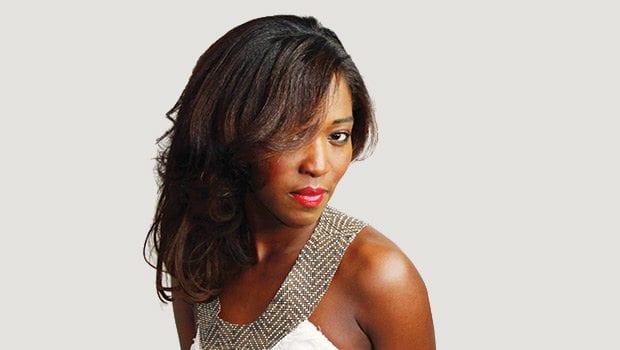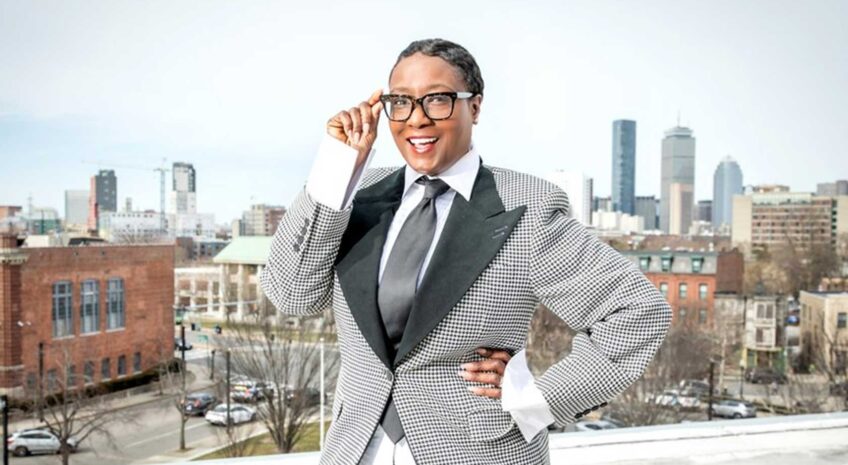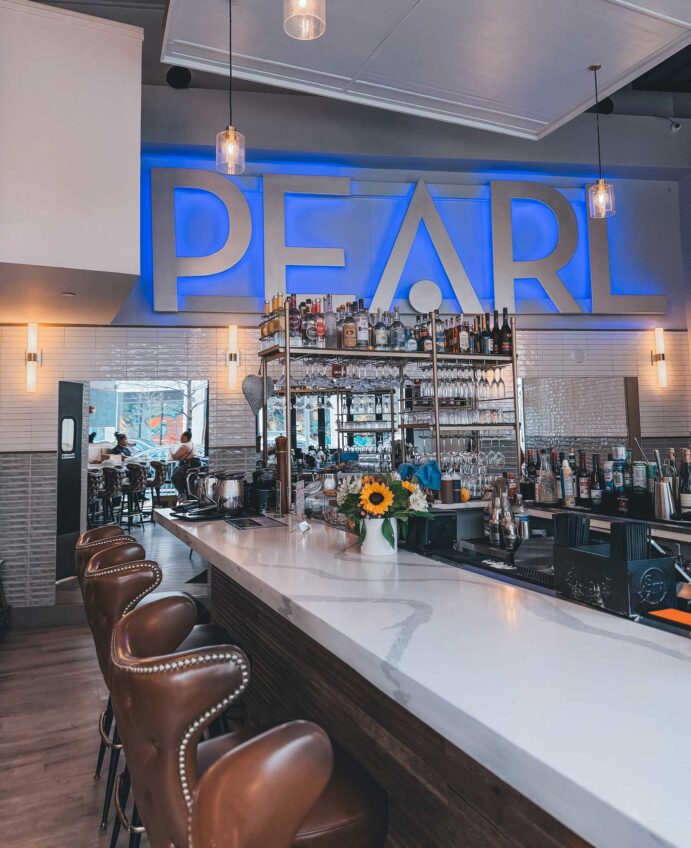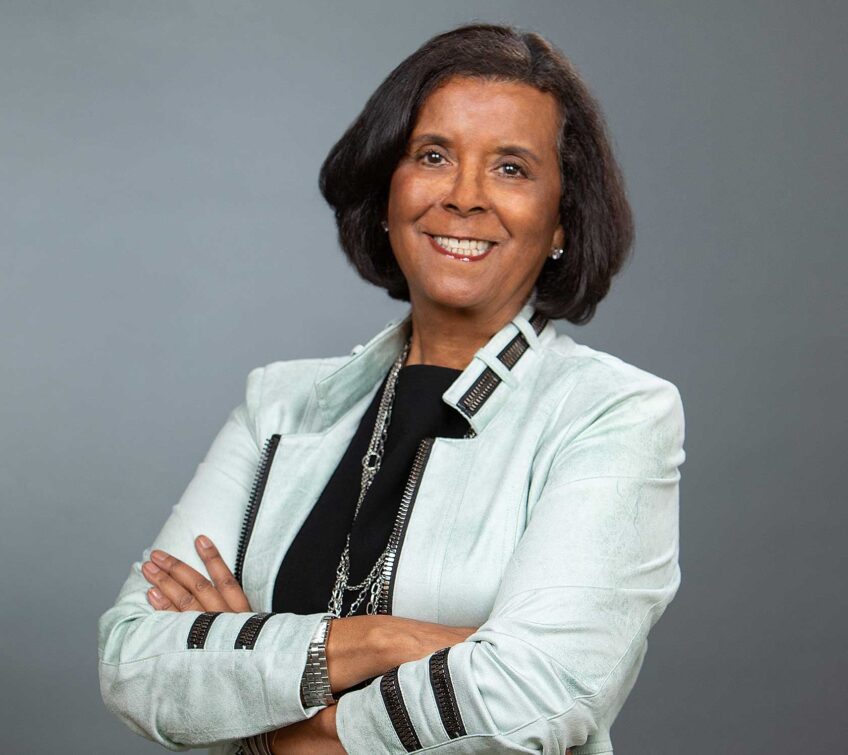
A global traveler since she was 9 years old, it was only natural that Kesi Gibson would create a company that melds the beauty and colors of her Jamaican heritage, her passion for design, fashion, and art, and her interest in finance. In August 2013, Gibson founded Kyu Mélange (pronounced Q-Mey-Longe), which is a “purpose driven fashion and lifestyle company” offering multi-functional, hand-crafted, unisex leather bags, clutches and accessories, sourced from around the globe. (“Kyu” means “progress” in Japanese and “mélange” means “mixture” in French.)

Author: Kesi Gibson/Kyu MelangeThe petit Eclair Voyager is a stylish travel companion for men and women who always like to look their best while jet-setting. With its sophisticated and functional design, the Eclair is perfect for weekend getaways and transcontinental voyages.
The daughter of a fashion designer, Gibson grew up in a household of art, but never thought that one day this would facilitate her entry into the same world. “Growing up, I never thought that would be my career, but I kept doing a lot with the design world, with the art world, just by virtue of having my mom as my mom,” Gibson said. “I was getting more immersed into art which I was doing as a hobby. I was helping other designers with their brand and their businesses and I decided that I really wanted to have a world with all my passions at once. You know, I have to have a life for finance, a life for impact, a life for fashion and art, and so that’s kind of how the whole brand came about.”
The budding entrepreneur, who attended Mount Holyoke College, was studying to be a dancer and pursuing a Bachelor of Arts degree in Dance and Art History. Unfortunately, she broke her ankle in her sophomore year in college and ended up switching her major to Economics and International Relations, and graduated from the college in 2005 at the top of her class. Soon after, she went to Wall Street to work for Deutsche Bank, which then led to a three-year stint at JP MorganChase & Co. and a summer investment associate position with Veronis Suhler Stevenson.
A few years in “a convergence of factors” led her to start thinking about pursuing her passions. She always was “big on impact” and had the opportunity to work for a lot of NGOs (non-governmental organizations), which she described as “impact organizations around creation, design, fashion, emerging artists, culture — all of that.”

Author: Kesi Gibson/Kyu MelangeThe Rap’d Portfolio from the Leather Luxury Collection is an elegant orderly portfolio, crafted in premium and textured leathers. It is lined with a functional interior and is the perfect computer case or tablet accessory. It easily transforms into a document holder for those on the go.
In 2010, Gibson traveled a lot and met women in different countries. She became an advisor with Women’s World Banking, a microfinance support organization, which got her thinking about her role in microfinance and developing a business of her own.
So, Gibson applied to and was accepted at The Wharton School, University of Pennsylvania, where she earned her MBA in Finance, Entrepreneurship and Brand Management in 2013. It took at least two years for Gibson to set up the logistics, operation, supply chain, and production for Kyu Mélange.
Her international travels inspired the idea for the mélange. She initially began with a leather goods company that incorporated art, but she wasn’t necessarily thinking of art from around the world. “The ideas, the perspectives of a different culture and countries, led to my designs,” she said. “But, as I traveled more that became kind of a thing. And, I just decided that I would embrace not just art from a specific country or genre, I would include art with a global point of view.”
That global point of view includes the way she approaches production. “We’re definitely really big on ethical production. From a supply chain perspective, we work a lot with the women in the different communities, making sure that one, they’re paid appropriate wages, but beyond that, they can also be celebrated.”
With help from her parents in providing access to the supply chain, Kyu Mélange’s fabrics and materials are sourced from Columbia, Uzbekistan, Turkey, Senegal, Ghana, Ethiopia and Indonesia. The company sources leather used in their bags from artisans in Brazil, Turkey and Columbia.
Through her company and its website, Gibson wants to provide a platform to give the subcontractors, who are mostly women, international exposure and “to really help the artisans around the world who are involved to go beyond their street corners in terms of the way they view their economic circumstances or possibilities.”

Author: Kesi Gibson/Kyu MelangeSpecial edition white python leather.
Gibson knows she has a great team surrounding her, which includes her mother and her advisory board. “I definitely had help and support and I’m grateful for that.”
And, so working from and understanding the global perspective, Gibson is adamant about highlighting the craft of the artisans, “because, I think at the end of the day, they’re the hands that produce the products, right? Most of the industry relies on the work of, I call them ‘the invisible hands of fashion,’” a phrase she plans on trademarking.
“I call them the invisible hands of fashion because very rarely do you see the face behind the beautiful bag that you get to wear. I think as a country, and a world that puts consumption at the forefront of everything, it’s important for you to understand [the backstory of] what you’re wearing.”


![Banner [Virtual] Art Gallery](https://baystatebanner.com/wp-content/uploads/2024/04/Cagen-Luse_Men-at-store-e1713991226112-150x150.jpg)



